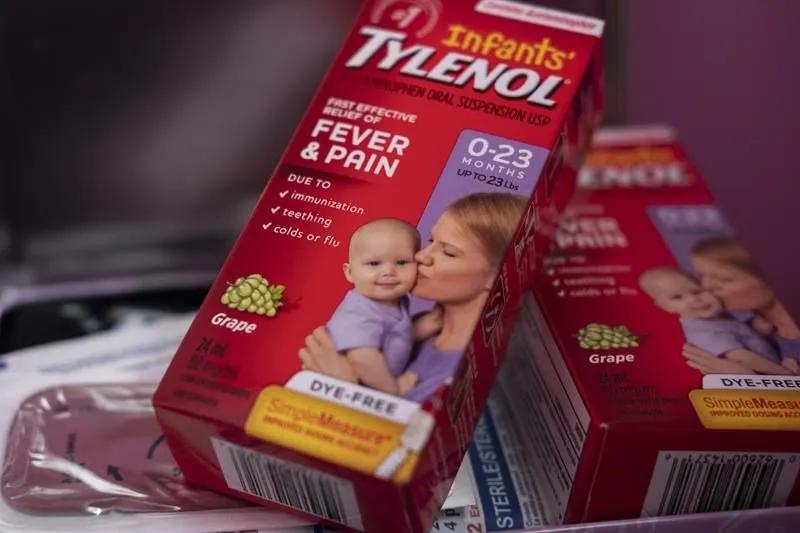
WASHINGTON (Enmaeya News) — September 23, 2025
The U.S. Food and Drug Administration announced Monday that it will add a new warning label to acetaminophen, a widely used painkiller known as paracetamol or Tylenol, citing a “possible association” with autism when taken during pregnancy.
Roughly half of pregnant people worldwide take acetaminophen to treat pain or fever. But the FDA stressed that the evidence linking the drug to autism is limited.
“Autism has many possible causes,” said U.S. Health Secretary Robert F. Kennedy Jr. during the announcement. FDA Commissioner Martin Makary added that in some cases, insufficient folate transport to the brain has been linked to traits associated with autism. The agency said it will begin reviewing approval of a form of folate called leucovorin for people with low folate levels in brain and spinal cord fluid.
American President Donald Trump took a more direct approach. “Don’t take Tylenol,” he said repeatedly. “Fight like hell not to take it.”
Autism is a developmental condition that affects social communication and behavior. While its reported prevalence has increased in some countries in recent decades, many experts caution that no definitive cause has been identified.
“There is no definitive evidence to suggest that paracetamol use in mothers is a cause of autism,” said James Cusack, CEO of U.K.-based autism research charity Autistica. “People are trying to look for simple answers to complex problems.”
Several large studies have examined whether acetaminophen use in pregnancy increases the risk of autism. A study in Sweden of nearly 2.5 million children found only a tiny difference: 1.42% of children exposed to acetaminophen were later diagnosed with autism, compared to 1.33% of unexposed children. Sibling comparisons in the study showed no link.
A similar study in Japan with over 200,000 children also found no connection between prenatal acetaminophen exposure and autism.
Experts caution that any apparent links in smaller studies may be explained by other health factors. “Women who take acetaminophen during pregnancy are often in poorer health,” said Viktor Ahlqvist, an epidemiologist at the Karolinska Institute in Sweden. “Confounding factors are a major challenge in this research.”
The FDA’s announcement also came alongside controversial remarks linking vaccines to autism, a claim repeatedly disproven by decades of research.
“The evidence does not support a causal link between acetaminophen or vaccines and autism,” said Sura Alwan, a clinical teratologist at the University of British Columbia. “Suggesting otherwise risks spreading misinformation and undermining confidence in safe treatments and vaccines.”
Tylenol’s manufacturer, Kenvue Inc., said in a statement that “independent, sound science clearly shows that taking acetaminophen does not cause autism.”



